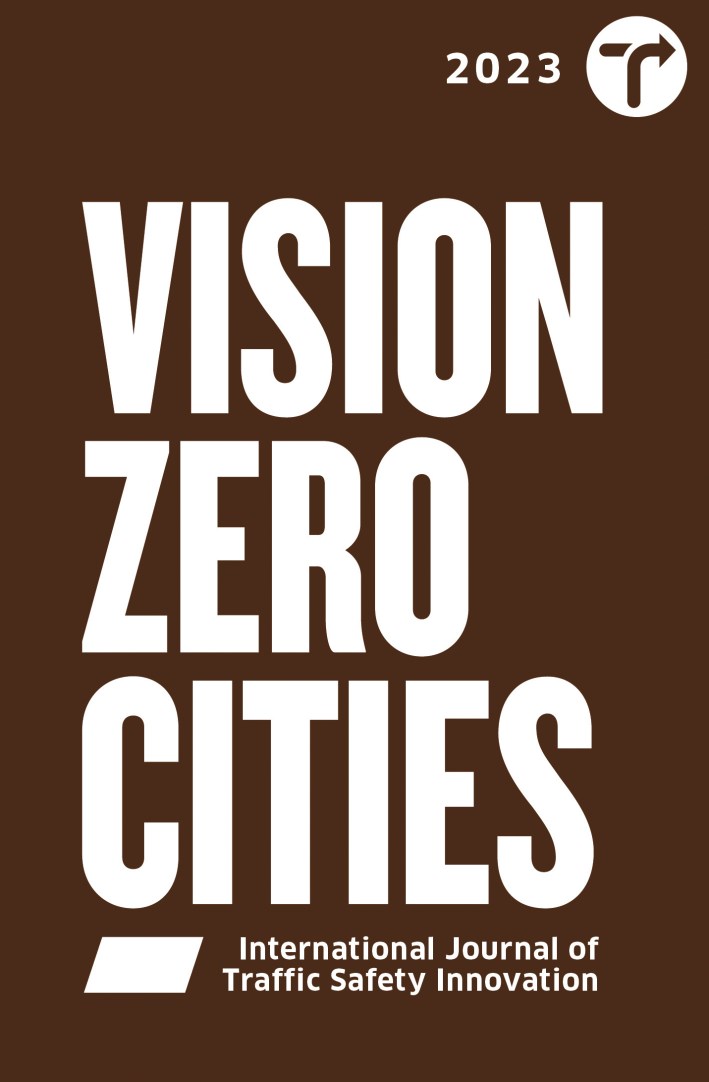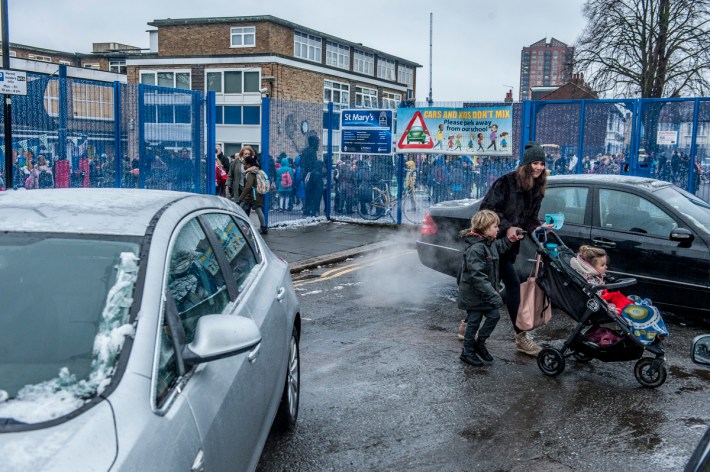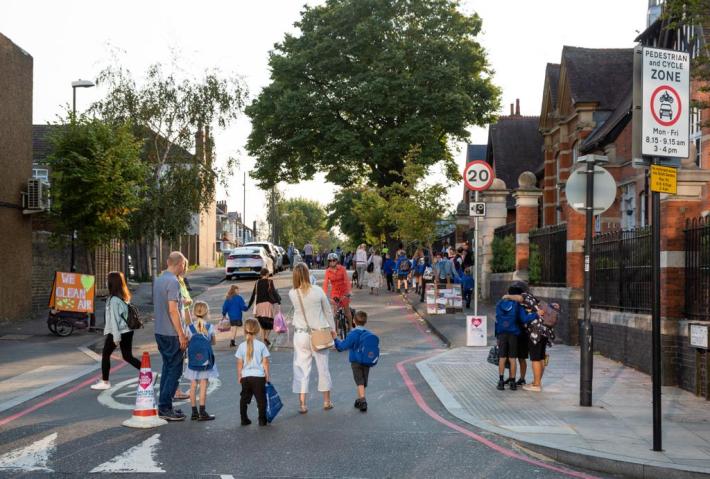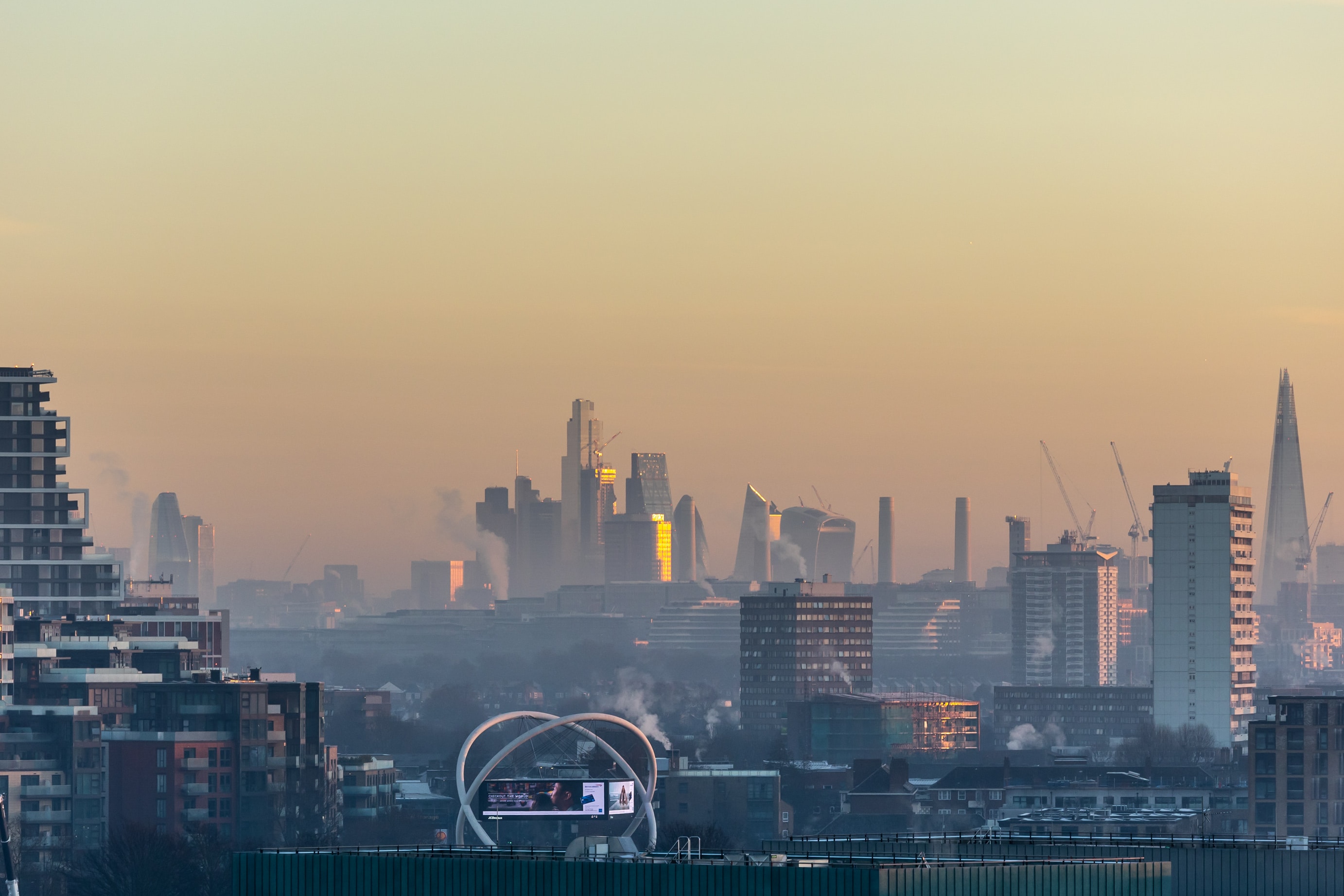Road vehicles present a serious danger to children’s lives, both physically and physiologically. Cars and trucks can kill or seriously injure young children in an instant, but the particles they produce through tyre wear, brake wear, road surface wear and resuspended road dust, as well as exhaust emissions, can also erode children’s health. Long-term exposure to these toxic pollutants causes heart disease, respiratory and lung issues in adults and children, dementia, miscarriage, psychotic episodes in teens, and reduced cognitive ability.

On July 6th, 2023, Selena Lau and Nuria Sajjad – both of whom were only eight years old – were tragically killed when a person driving a Land Rover plowed into their school in Wimbledon, making Vision Zero’s action plan feel less “bold and ambitious”, and more desperately overdue. Just ten years earlier, on February 15, 2013, Ella Kissi-Debrah died tragically at just nine years old; her fatal asthma attack was strongly contributed to by air pollution. Three little lives were taken far too soon; three too many out of up to 36,000 early deaths annually in the U.K. from air pollution alone, in addition to over 16,000 kids who are injured and killed directly as a result of traffic crashes.
Mums for Lungs shares Vision Zero’s mission to end all deaths and serious harm caused by drivers. When we insist on zero as the only acceptable number, the concept of ‘progress’ will be rendered unavailable to anyone looking to justify our normalised excessive car use on the basis of falling fatalities. Quite simply, each and every one of us who is harmed or killed by road traffic is one too many; there isn’t an acceptable statistic when it comes to loss of life.
In light of the tragic deaths and health complications that children suffer to pay for the convenience of cars, it’s clear that the current cultural model that centres the car is failing both people and the planet. And it is always marginalised people - who contribute the least to road traffic-related harm – who are hit the hardest.
The outlook from both lenses is clear: Londoners from global majority backgrounds, disabled people, and those living in poverty are more at risk of serious harm as a result of both road traffic crashes and toxic car pollution. In the U.K., global majority pedestrians from underprivileged communities are over three times as likely to be injured on Britain’s roads, in part because smaller and affordable housing is often clustered around main roads, where risks from pollution and crashes are highest.

Across populations, an increased risk of harm by car crash is often paralleled by an increased risk of harm by car pollution. When a pregnant woman is in the driving seat, she is operating a potentially dangerous vehicle that literally wasn’t designed with the safety of herself or her highly vulnerable unborn foetus in mind; due to male-only crash testing, women are 73% more likely to be injured in a car wreck than men, and little research exists demonstrating the impact of a crash on pregnant women and babies. The situation from the lens of vehicles emitting pollution is just as alarming: pregnant women’s bodies carry a higher likelihood of passing fine particulate matter, including from car exhaust, to the developing foetus. Indeed, a recent study found an association between prenatal ultrafine particle exposure and asthma development in children.
Children of color are particularly impacted by traffic dangers and air pollution; a London study found they are on average 1.5 times as likely to be killed or seriously injured on the roads.
Disabled children too are suffering disproportionately: though there is a lack of adequate research in this area (itself a disabling contributor), one study found that disabled pedestrians are five times more likely than non-disabled pedestrians to be injured in traffic, and another found that children with intellectual disabilities have significantly higher rates of exposure to outdoor air pollution.
The status quo is not ecologically sustainable. Experts have discovered that air pollution and climate change form a lethal feedback loop, with pollution causing and then being exacerbated by climate change. Indeed, the effects of climate change are already putting road users in jeopardy.
Death, disease, and serious injury as a result of road traffic, including from car pollution, tell us a story about what is valued according to the prevailing narrative around which infrastructural inequity is organised. We live in the ongoing legacy of the Ford Model T: the age of the social – and increasingly political — dominance of car culture, representing personal freedom, independence, masculinity, and status.
These concepts acquire their power at the expense of marginalised people’s basic health and survival: people with limited access, people who have no choice but to wheel, walk, or take public transport on roads primarily designed for cars, people who lack White non-disabled privilege, women and children.

Vision Zero’s dual aims respectively are to eliminate all traffic fatalities and severe injuries while increasing safe, healthy, and equitable mobility for all. This two-pronged approach is key to the intersection between Vision Zero and Mums for Lungs: we too believe in the importance of addressing a variety of negative measures with evidence-based positive systemic change. We, for example, agree with lowering speed limits and expanding London’s Clean Air Zones, and want to go further in reducing the acute danger of particulate pollution by phasing out diesel cars. Measures like these are necessary but need to be part of a much broader vision of positive changes in order to create an inclusive, mutually assistive, community-centred public and active travel network with affordable public transport and safe streets designed to beautify our environment and protect its inhabitants.
Mums for Lungs insists on the necessary and indeed achievable aim of consistently keeping air pollution below current WHO limits, bearing in mind scientist Gary Fuller’s recent research on the lifelong impacts of air pollution propelling us to “go further and focus on continually improving air pollution for all communities, especially the young.”
At a fundamental level, Aristotle was right when he asserted that we are social creatures: it’s time for the rationale behind our streets to reflect and empower our own inbuilt diversity and interdependence, with room for all to thrive, leaving precisely zero behind.






